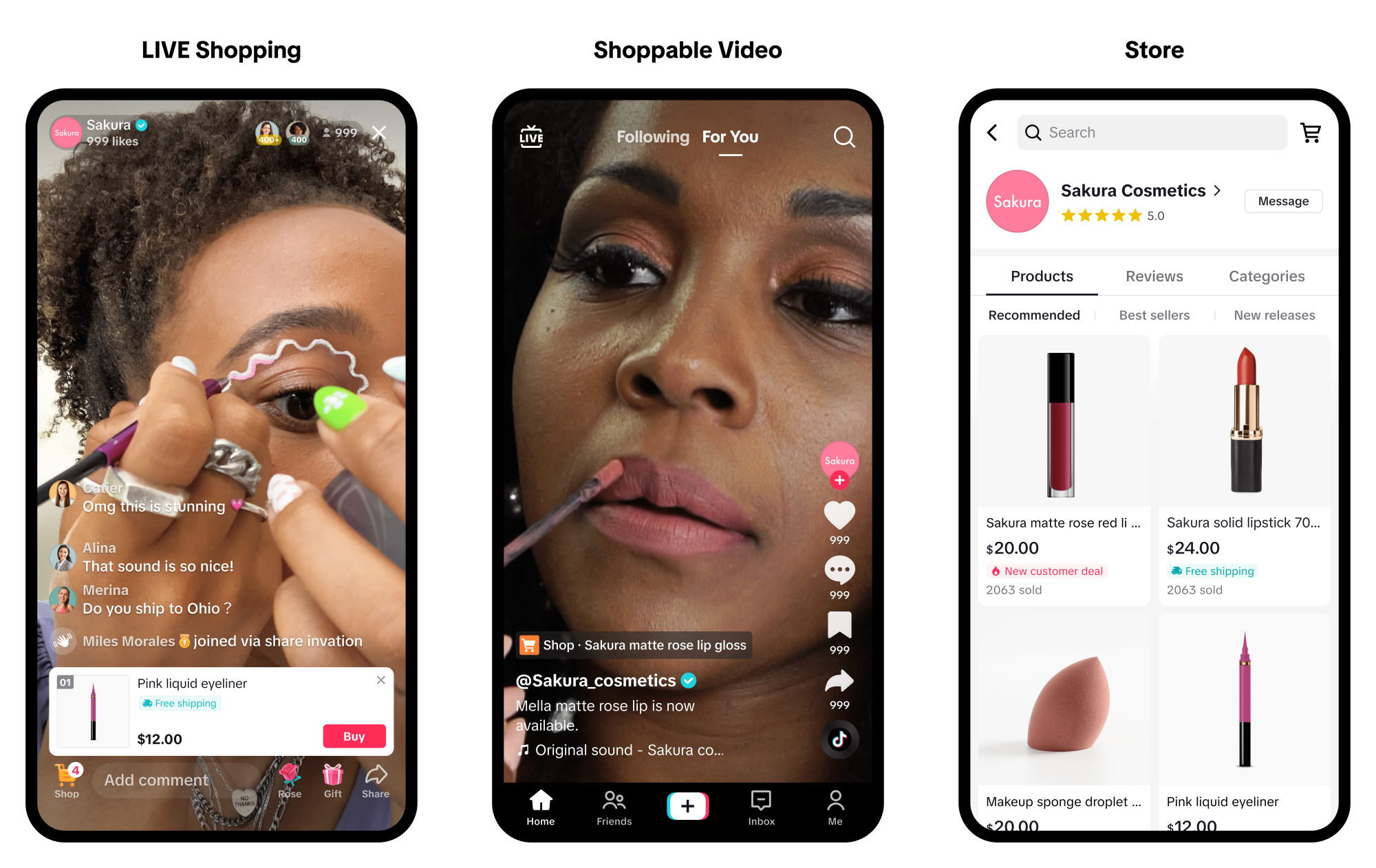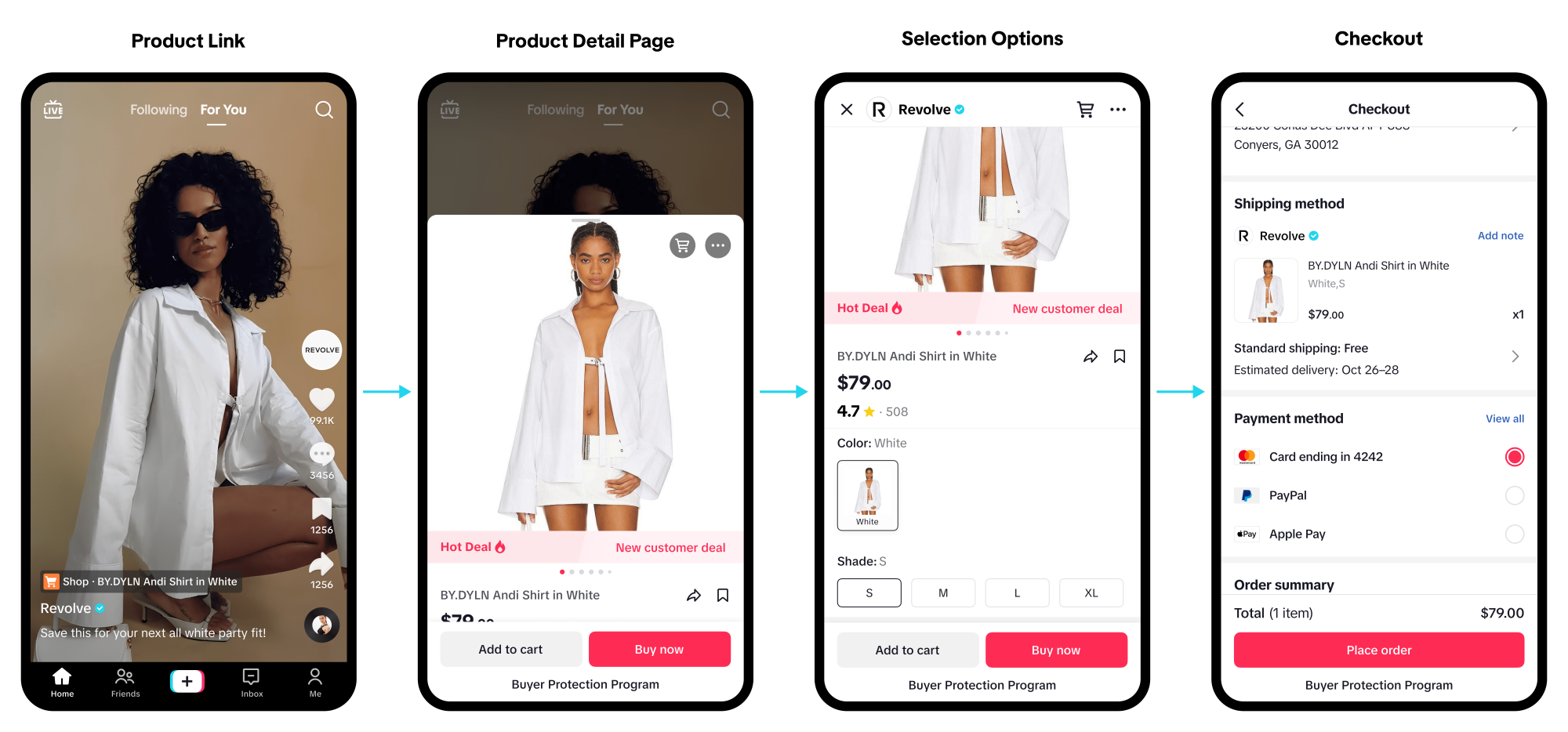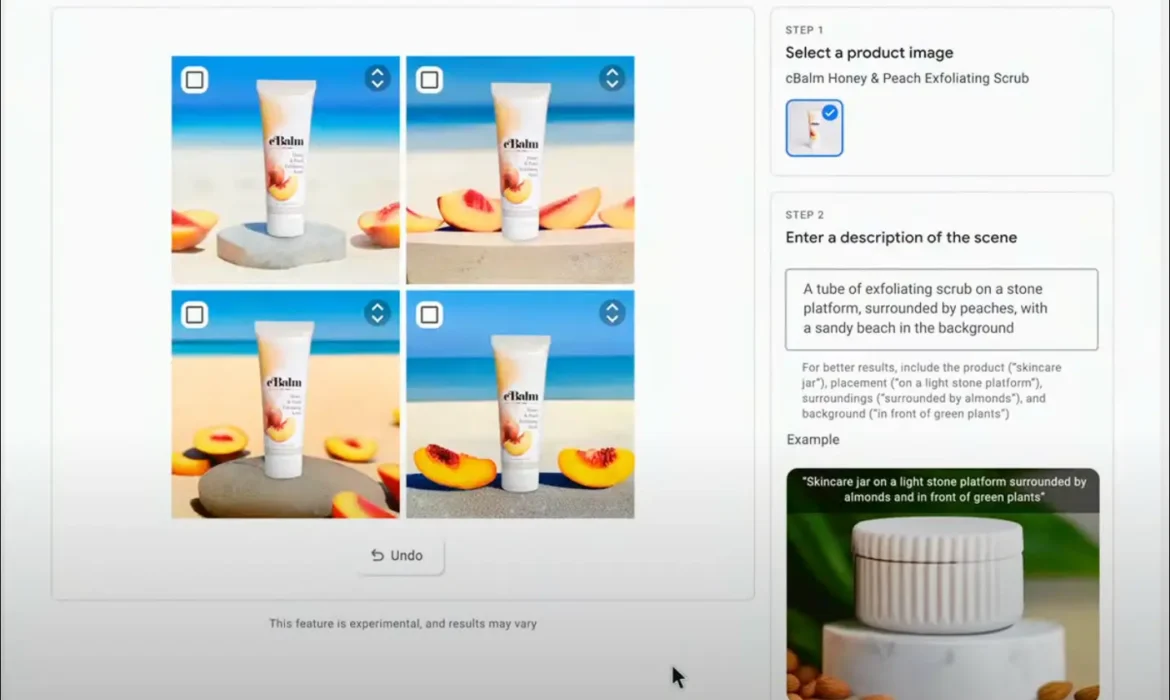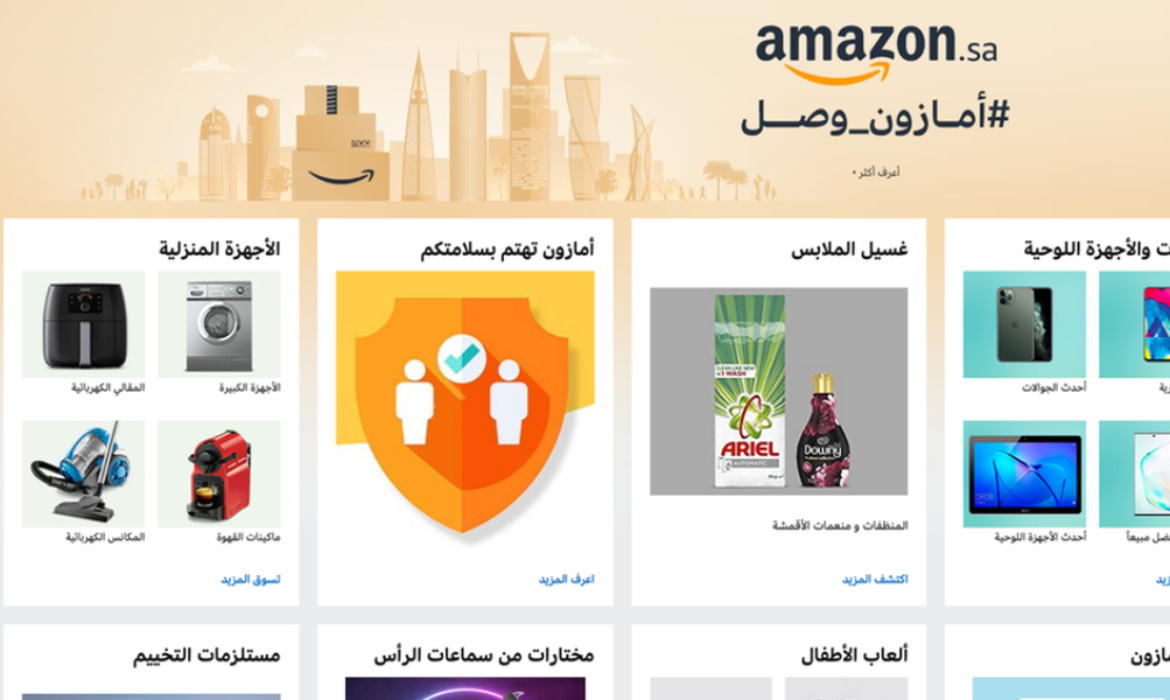Google Cloud Introduces New Generative AI Tools for Retailers
On the eve of the annual convention of the National Retail Federation, Google unveiled several new generative AI tools intended to improve the online shopping experiences and other retail operations of retailers. The tools make use of artificial intelligence technologies that are generative. They are made to make the implementation of chatbots and AI easier, enhance search, and produce more customized shopping experiences. One of these new products is an AI-powered chatbot that merchants can incorporate into their mobile apps or websites.
The most recent illustration of generative AI’s expanding impact in the retail sector is found in Google Cloud’s products. Retailers can modernize operations, personalize online shopping, and change in-store technology rollouts with the aid of these generative AI-powered technologies. These virtual representatives can converse with clients and make recommendations for products based on their likes.
Google Cloud unveils new generative AI tools for retailers
In addition, tools for improving retailers’ customer support systems and streamlining their product cataloging procedures are included in Google’s recently released AI products. In addition to e-commerce, physical stores are receiving new artificial intelligence capabilities via Google Distributed Cloud Edge, an already available hardware and software package.
All these areas seem to have a great deal of room for improvement. After using virtual assistants, only about one-third of customers are happy with them, and almost 20% say they wouldn’t use them again. Customers are still very interested in using AI, though. Eighty percent of those who haven’t used the technology for shopping would like to give it a try. The majority, or five9%, would like to use AI applications while they shop.
Read More: Imagine Communications Join Forces with Google Ad Manager
New generative AI tools
Google’s offerings are aimed squarely at these issues. The new tools include:
Conversational Commerce
Similar to brand-specific ChatGPT, Conversational Commerce facilitates the joining of chatbots on websites and mobile apps. The salespeople converse with customers in plain language and make customized product recommendations depending on each person’s preferences. When it comes to products, they can have “helpful and nuanced” conversations with customers. Moreover, it offers recommendations based on their preferences.
Catalog and content Enrichment toolset
Google Cloud’s new Catalog and Content Enrichment toolset, which uses GenAI models—including the previously mentioned PaLM and Imagen—to automatically generate product descriptions, metadata, categorization suggestions, and more from as little as a single product photo, complements the Conversational Commerce Solution. Additionally, retailers can use the toolset to create new product images from pre-existing ones. Furthermore, it can also leverage product descriptions as the foundation for AI-generated product images.
For example, when a customer is looking for a formal dress for a wedding, a virtual agent can talk to them and offer customized product options based on their preferences for colors, the type of venue, the weather, complementary accessories, and price range. Importantly, rather than taking months, retailers can use these advanced conversation AI agents in a matter of weeks. This new solution can be integrated into a retailer’s current catalog management software or run on the Vertex AI platform on Google Cloud.
Read More: Google’s Third-Party Cookies Deprecation Rolls Out Today
Vertex AI
Additionally, Vertex AI Search for retail, a product from Google Cloud, has a new LLM capability. It provides retailers with natively embedded Google-quality search, browse, and recommendation capabilities on their unique product catalog and shopper search patterns. With the addition of new large language model (LLM) capabilities, Vertex AI Search enables sellers to tailor an LLM to their specific catalog and the search habits of their customers. By better ranking possible products as a fit for any given search term, it can give users more relevant search results.
Customer Service Modernization
Customer Service Modernization combines chatbots with an existing retailer’s CRM data. It enhances self-service, recommends products, sets up appointments, monitors order status, and more.
Google Distributed Cloud Edge
To lower IT expenses and resource commitments related to retail GenAI, Google unveiled the Google Distributed Cloud Edge. It is a managed self-contained hardware kit designed specifically for retailers. It is intended to facilitate retailers’ use of AI in places with spotty or nonexistent internet. Store analytics, frictionless checkout, and streamlined mission-critical store operations are currently its main use cases. The edge cluster, which powers customers’ GenAI apps, is said by Google to be compatible with a variety of retail spaces, including convenience stores, gas stations, fast-casual restaurants, and grocery stores. It comes in a range of sizes, from single-server to multi-server configurations.
Here’s what they said
Carrie Tharp, vice president of Strategic Industries, Google Cloud said,
In only a year, generative AI has morphed from a barely recognized concept to one of the fastest-moving capabilities in all of technology and a critical part of many retailers’ agendas. With the ability to accelerate growth, boost efficiency, fuel innovation, and reduce toil, generative AI solutions are ready to be deployed now, and Google Cloud’s recent innovations can help retailers recognize value in 2024.
Read More: Google Launches Google Ads Data Manager for First-Party Data
TikTok Launches TikTok Shop in the US, Transforms Online Retail
TikTok is finally launching its retail aspirations with TikTok Shop for all users in the US after years of testing and rumors. The business aims to transform the culture of online shopping with motivating hashtags like #TikTokMadeMeBuyIt. On the app’s home screen, a Shop button now connects users to a marketplace. With a few clicks, a user can purchase items without exiting the app. Additionally, some of the products will have a Shop button in the films that will take viewers to the store. The corporation is placing a big gamble with this decision because it hopes to generate a new revenue source in the US, where the app has over 150 million users, by leveraging the app’s cultural influence.
TikTok Shop blends the strength of community, creativity, and commerce to offer a seamless buying experience while empowering brands and creators to interact with avid consumers based on their interests. The launch of a retail portal on a social networking platform is nothing new. The Shop tab was previously introduced by Instagram in 2020. It allowed customers to browse the brand’s Instagram photographs and videos and make purchases. The tab, though, was dropped earlier in March.
TikTok Shop
With TikTok Shop, the company offers users a way to enjoy the thrill of finding and buying new things without ever leaving the app. It has created easy-to-use tools to assist businesses in making this a reality. TikTok Shop is a separate tab that users may use to search for and find various things, explore goods in various categories, and handle their orders.

Image credit- TikTok
Read more: NYC Bans TikTok On City-Issued Devices Amid Security Concerns
In-Feed Video and LIVE Shopping
Shop tagged items directly from videos and LIVEs on the “FOR YOU” feed’s in-feed video and LIVE shopping feature.
Product Showcase
Browse product names, read reviews, and make direct purchases from the profile of a favorite brand. On their profile page, businesses can create personalized product collections.
Shop Tab
Companies list their goods on a marketplace for new products, where shoppers can quickly search and find deals. Shoppable content and product listings highlight product recommendations, and buyers may manage orders from one tab.
Affiliate Program
Through new commission-based product marketing opportunities, creators can get in touch with sellers. Creators have a new option to monetize their talent by showcasing products in quick videos and livestreams. Sellers may select the affiliate plan that’s best for their business.
Shop Ads
New TikTok Shop Ads give sellers more possibilities to advertise their TikTok Shops so that users may find them and make purchases there.
Fulfilled by TikTok
TikTok Shop stores pick, pack, and then ship sellers’ products to clients as part of their new logistics service. This allows retailers to concentrate on their own products.
Secure checkout
To ensure a quick, simple, and secure checkout procedure, TikTok collaborates with reputable third-party payment platforms to enable transactions on the TikTok Shop. All US user data that is safeguarded by TikTok is kept in the country and maintained by USDS.
The social media site can gather more user data through its Shop tab, including addresses, financial data, and purchasing preferences. However, TikTok has stressed that all data gathered from US customers is maintained in the nation and managed by USDS, a distinct institution responsible for handling user data. TikTok is already under fire for its ties with China and has drawn criticism for it.
Read more: Zeotap Data Joins TikTok to Enhance Targeting And Boost Ad Campaign
How to Sign Up for the TikTok Shop?
In the TikTok app,
- Visit your profile and using the menu, navigate to Creator tools.
- You will see the option to sign up for the TikTok shop as a seller or creator to earn brand commission
- Creators must at least have 5,000 followers and be 18 years old to be eligible for the TikTok Shop affiliate program.

Image credit- TikTok
TikTok shop’s integration with E-commerce Apps
Several well-known e-commerce platforms, including Shopify, WooCommerce, BigCommerce, Magneto, and Salesforce Commerce Cloud, have connected with TikTok Shop. As a result, it should be simple for current online merchants to begin selling on TikTok without starting from scratch. In order to promote omnichannel businesses, TikTok has also worked with a number of multi-channel platforms, including Channel Advisor and Feedonomics. Vendors can use apps from companies like Zendesk, Printful, Yotpo, EasyShip, and others to enhance TikTok Shops’ functionality and capabilities.
Influencer marketing and social commerce in the future
Although the TikTok shop has a lot of potential, concerns around data privacy will always exist. The corporation faces a challenging task in maintaining a positive user experience while upholding privacy and security concerns, largely because of previous incidents involving user data. In order to protect users’ security and privacy, TikTok uses reputable third-party payment platforms. Integrating customer contact with e-commerce, as each interaction may result in a direct sale or an affiliate commission. Thailand, Vietnam, Malaysia, the Philippines, Singapore, and the UK are among the nations that have access to TikTok’s online marketplace.
Read More: TikTok Prioritize User Rights with Revised DSA Standards in the EU
Facebook Debuts Shops In Its Mobile App, Instagram Expands Checkout Feature

Facebook rolled out a shopping section ‘Facebook Shops’ to its main app across the U.S and expanded Instagram’s checkout feature.
The new section Facebook Shops allows users to browse product catalogs from businesses they like, discover new businesses and make purchases, all-in-one place, and without leaving the app. A similar feature ‘ Instagram Shops’ was introduced on its photo-sharing app last month.
The news follows the launch of Facebook Shops in May and on Tuesday it announced a couple of new e-commerce features within its flagship mobile app and Instagram. Businesses were already able to add product catalogs to their Facebook pages but there was no dedicated section inside the app for browsing the selections.
The company explained the rapid shift toward online shopping as a reason to foray into eCommerce.
“During the COVID-19 pandemic, the shift to online shopping has rapidly accelerated, with an estimated 85% of people worldwide now shopping online.
We want to make shopping easier for people and empower anyone, from an entrepreneur to the largest brand, to use our apps to connect with customers and grow their business.”
Here are the details that will help people to shop on the apps and tools to help businesses sell online.
Shop Till You Drop!
A new ‘Shop’ tab is introduced in the mobile app where businesses can showcase their products and customers can shop them in the app.
“Facebook Shop makes it easy for people to find products from businesses they love, discover new ones and make purchases, all in one place.”
It’s a significant step for Facebook’s eCommerce push, helping users to browse and purchase from shop-enabled Pages directly in the app. Presently, being tested in the US but Facebook said in the coming weeks it will be available to all eligible businesses.

New customization features will also be added to Facebook Shops that includes:
- New design layouts for featuring single products or groups of products in Shops
- Real-time preview of collections as they are designed
- The ability to automatically create Shops for new sellers
- New insights to measure results in Commerce Manager

Expanding Instagram CheckOut
Checkout allows users to pay for items directly inside the app and will soon be available to all businesses in the U.S after keeping the feature exclusive to certain partners for almost 18 months. Though there is a limitation,
To use checkout, businesses must have Shops and use Facebook Commerce Manager or our partners Shopify and BigCommerce. We’ll support more platform partners soon.
It will also provide an incentive by waiving the selling fees for businesses through the end of the year due to the current economic crisis.
Shop Using Messaging
Facebook added a new message option to the shop in order to connect the customers directly to the seller through Messenger, WhatsApp, or Instagram Direct.
“Messaging through Shops combines the in-store experience of being able to ask a salesperson questions with the convenience of online shopping.”

Customers can view the products in the chat and can easily share with friends and family for feedback before any purchase. This feature is now being tested on Messenger and Instagram Direct and will start testing on WhatsApp soon.

This will definitely boost Facebook’s dominant presence in messaging with its eCommerce capacity, providing compelling business opportunities as people are regular users of these messaging apps.
Live Facebook and Instagram Shopping
Another promotional option is Facebook and Instagram live shopping. This means businesses can sell products during a live stream.
“Facebook Live Shopping includes new features to help businesses easily set up a live experience featuring products from their Shop and sell directly from the video.”
Instagram Live Shopping is available to all businesses and creators using checkout in the US.

Video is the most engaging type of content and during the lockdown during the pandemic, the viewership of Facebook live streams had risen 50% since January as people looked for various ways to stay connected and entertained.
The global lockdown has provided a significant opportunity to Facebook’s eCommerce business as more people shifted to online shopping. The social network will soon become an essential part of our day-to-day lives as it prepares to build a commerce eco-system within its own network.
Amazon.sa is about to Replace Souq in Saudi Arabia
Highlights:
- Amazon.sa has been launched in Saudi Arabia replacing Souq.
- The eCommerce giant is operating three fulfillment centers and 11 delivery stations with a workforce of more than 1400 across Saudi Arabia.
- All existing Souq customer credentials, wish lists, delivery addresses, payment methods, and customer support queries have been converted to new Amazon.sa accounts.
- In the wake of the pandemic, eCommerce is booming in the Middle East and this online store brings Souk’s local know-how and Amazon’s global experience.
Amazon and Souq announced the launch of Amazon.sa in Saudi Arabia to replace Souq.com. This move came after a year after Amazon rebranded Souq to Amazon.ae in the UAE and 3 years after the e-commerce platform was acquired by Amazon in a deal worth $580 million (Dh 2.13billion).

Ronaldo Mouchawar, founder of Souq and now the Vice President of Amazon in the Middle East and North Africa commented on the launch, said,
“Today marks a key milestone … with Amazon.sa, we want to provide what customers have been asking us for the ability to shop a broader selection of both local products and international goods from Amazon.”
He further added,
“Partnering closely with our local and global sellers, we will continue to delight customers in Saudi Arabia by growing our product range while ensuring great prices, fast delivery, and a convenient and trusted shopping experience.”
Shoppers in Saudi can enjoy free next day deliveries on orders above Saudi Riyals 200(Dh196) or can opt for paid same-day delivery to the selected areas of the kingdom. However, Amazon Prime is not yet available on amazon.sa yet. Customers will be able to shop in Arabic or English on both the Amazon shopping app and website.
Shoppers can search for products and pay in local currency or credit/debit cards or opt for cash-on-delivery options and make installment payments from select Saudi banks.
Rafid bin Amin Fatani, Amazon’s head of public policy in Africa and the Middle East said,
“As we launch today, thousands of Saudi businesses use Amazon.sa to reach their customers and we look forward to growing this number further in the coming years.”
Expansion on cards
The Saudi eCommerce market is growing rapidly and is anticipated to surpass US$ 25 Billion by the end of the year 2026. Amazon is building a local logistics and operations network spreading across the kingdom. The company announced a new 226,00 square-foot Jeddah facility and Saudi women will make up approximately 40% of the workforce.
This partnership will encourage Saudi consumers to move further towards digital payments. Ziyad bin Bandar Al-Yousef, managing director of Saudi Payments said,
“This new partnership with Amazon will only serve to strengthen the kingdom’s digital transformation in the payments sector.”
Learn more: Adimo Joins Forces With FutureTech, To Create A True Commerce





